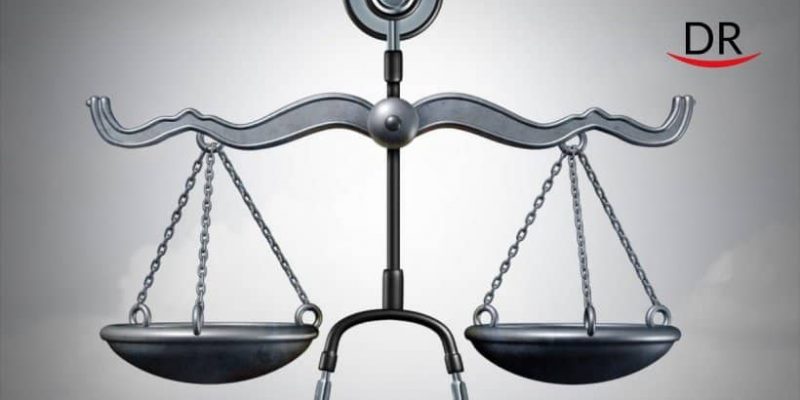Any individual suffers with an injury which has been apparently caused following a dental proceedure or after dental treatment, this may constitute an act of dental negligence by the dentist.
The Supreme Court of India has had a detailed look on the act of negligence and framed the following guidelines for liabilities toward dental negligence
- Sense of Duty: A doctor is accountable when he sees the patient in an emergency and becomes duty bound when they agree to treat a patient.
- Delinquency of duty: Dentists are mainly responsible for such an act which has lead to an injury through a sequence of unacceptable dental procedures which may include minor surgical procedure like tooth extractions etc.
- Damage: The harm occurred because of dereliction of duty. Although a damage has occurred which is not life threatening, a patient cannot take any action under law against the doctor until and unless a doctor has deliberately committed an awful act costing patient to lose his/her livelihood. Thus, Patient has the liberty to approach the criminal court and defame the doctor for his obstinate conduct.
- Direct damage: The detrimental effects on a patient has resulted from direct dereliction of duty by the dentist.
The act of negligence can be performed deliberately or unintentionally by a doctor or a patient. In this scenario, if a duty bound dentist does any performance on the dental chair that would cause any harm, injury or death then the dentist is solely responsible for such an act provided he/she has a strong defence against such an unfortunate incident.
A patient is responsible for an act of negligence when the fail to follow the dentist's advice, makes their own decisions against the prescribed treatment and does not turn up for a recall or follow-up or fails to follow the medicines which he was asked to take regularly. In these circumstances, these laws made in our constitution were either of the aggrieved parties can claim damages via civil litigations or punish the wrongdoers with criminal liabilities. Usually, it’s very difficult to prove an act of negligence on either of the parties, but only if the dentist is proven guilty of an act which they have committed on a dental chair will they be liable for legal action.
Circumstances where a dentist can find themselves in an unfortunate situation
- Lack of communication and observation skills, where a dentist misses obtaining information during initial steps in case history recording
- Casual attitude of the dentist when a patient presents with them with medical conditions like uncontrolled diabetes and hypertension
- Lack of interpersonal skills, where a dentist is not able to take the patient into their confidence and perform certain steps which they may not be confident in
- Making wrong diagnosis and knowingly selecting poor cases for complete mouth rehabilitation just for the sake of monetary gain
- Going against the principles of dental ethics and working on targets, especially seen in chain of dental clinics
- Planning for dental surgeries in underprivileged hospital setups, which may lack proper sterilisation, cleanliness, nursing and medical staff for assistance
- Poor treatment planning and convincing patients to undergo dental surgeries without analysing the prognosis or outcome of the treatment. Especially noted under orthognathic surgeries and oral-nasopharyngeal cancer surgeries
In a dentist-patient relationship, the person who is entitled to receive any advice or treatment is always considered as dependent. Although a patient may or may not follow the advice given to them by the dentist, they may at anytime turn up to the dental office with an evil intention or a planned action just to defame our fellow dentist and make their life miserable. It is our duty to safeguard ourselves and our fellow dental/medical colleagues from fraudster patients who come up with an intention to do harm to the medical/dental health professionals.
There are civil and criminal laws and IPC sections like 304A, 336,337,338,420 etc, available in Indian judiciary to encounter any dreadful act committed either by the patient or the dentist. These laws and sections always rely on strong evidence, based on the available evidence, the patient or a dentist is prosecuted in Indian Penal Court. It’s not always right to think that our patients even if we have treated them and their families from years will never take action against their dentist who may commit an act of negligence. To give a final thought, any dentist at the worst scenario comes across such unfortunate litigations against them needs to understand the steps which will safeguard him from any legal battle.
- Follow rules strictly on dental practice as recommended by the state dental council
- Have a valid dental clinic licence
- Renew the state dental registration periodically
- Be aware that dental practice without a clinic licence is a criminal offence
- Be specifically trained for medical emergencies in dental clinic
- Mandatory storage of emergency drugs in dental clinic with portable oxygen cylinders
- Undergo Specific CPR (cardio-pulmonary resuscitation) training
- Keep all the patient dental records in a file or a case sheet with patients' signed informed consent
In the present world where corporate industry has taken over the ethics of medical and dental professions, there is a need for reinstitution of dental ethics and safe guarding our fellow dentists from any form of dental negligence or malpractice lawsuits. Dentistry is an expensive profession for the patients as they endow high expenditure for any cosmetic dental rehabilitation or procedures, additional care must be taken by the dentist to avoid any injuries to their patients and be aware of professional negligence and its consequences.
References
- Madhu Kumari. Negligence in Medical and Dental Professionals: A Review. International Journal of Oral Health and Medical Research 2017; 4(1).
- Goel Kirti, Goel Parul. Negligence and its Legal Implications for Dental Professionals TMU J Dent 2014 Sept; 1(3):113-118.
- Acharya B Ashith. Professional Negligence in Dental Practice. Journal of Forensic Dental Sciences, 2009 June; 1(1):2-7.
- Debbarma Juthika. Consumer Protection Act. Delhi Psychiatry Journal 2009 October; 12(2):302-305.
- Yadwad B S. Consent – Its Medicolegal Aspects. JAPI 2005 Oct; 53:891-4.
- Kulkarni H G. Medical Profession and Law. Cr




















Comments